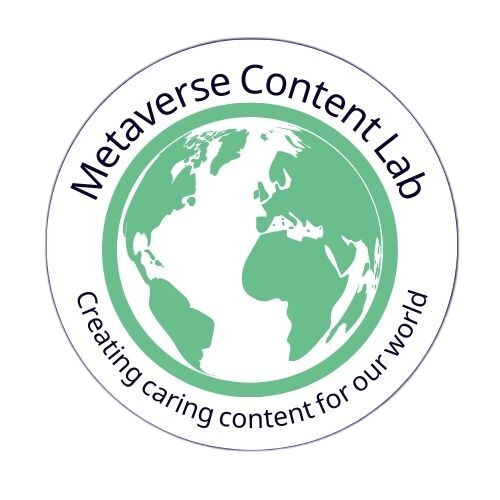Portfolio
The nature of our client work is often confidential, meaning that most of our content writing and copywriting projects can't be shared publicly.
Here you'll find a small taste of some of the work we have produced. If you'd like to learn more about the content niches we cover and what we can do for you, get in touch.

Gender Affirming Care And Why It Matters
Gender Affirming Care And Why It Matters

Lifestyle Collective, January 9, 2024
If you ask me, mental health and the pursuit of happiness should be our primary concerns. We only have this moment to live our life, and like the young whippersnappers would say, YOLO. But, sometimes, it is not that straightforward. Life throws all sorts of challenges and issues at us all as we move through it.
Approximately 3% of the global population have the extra complication of feeling uncomfortable or downright “wrong” in their birth-assigned sex, defined as gender dysphoria or incongruence.
Thankfully, in recent years, much of the world has become more understanding of the complexities of gender identity. The World Health Organisation no longer classifies gender incongruence as a mental health issue. A lot of the change and acceptance is thanks to the people who have told their stories, followed how they feel, undergone gender reassignment surgeries or sought to live as the person they truly are.
But there is still a lot to learn, and some right-wing or religious pushback has brought a lot of fear and hurt to many in the transgender community. This added trauma has made the need for Gender-affirming care (GAC) even more vital than ever.
What Is Gender-Affirming Care
GAC is a comprehensive approach to supporting individuals whose gender identity conflicts with the sex they were assigned at birth. It encompasses a range of social, psychological, behavioural, and medical interventions designed to help people feel happy, healthy, and safe in their gender.
Understanding key terms is essential when discussing gender-affirming care. Here are some important things we should all be familiar with if we wish to help support those around us in their journey to being who they are:
Advertisement
Gender identity: A person’s deeply held sense of their gender may differ from the sex they were assigned at birth.
Gender expression: This is how a person presents their gender to others through behaviour, clothing, hairstyles, etc.
Cisgender: A person whose gender identity matches the sex they were assigned at birth.
Transgender: A person whose gender identity differs from the sex they were assigned at birth.
Nonbinary: A gender identity that does not exclusively align with male or female.
By understanding that everyone is different and that gender identity can be a spectrum, we can start to care for each other fairly, ensure equitable services, and make everyone feel safe.
Types Of Gender-Affirming Healthcare
Gender-affirming healthcare approaches can differ depending on an individual’s needs. Here are some of the most common types of gender-affirming healthcare:
Hormone therapy: This is using hormones to help align a person’s secondary sex characteristics with their gender identity. This may involve taking testosterone for transgender men or oestrogen for transgender women.
Surgical options: These may include procedures such as chest reconstruction (top surgery), genital reconstruction (bottom surgery), or facial feminisation surgery, depending on an individual’s needs and preferences.
Nonsurgical options: Voice training, hair removal, or other procedures to help individuals feel more comfortable in their gender identity are part of the nonsurgical options available.
Puberty blockers: These medications can temporarily pause the onset of puberty, giving transgender youth more time to explore their gender identity before making any irreversible decisions.
While some people feel that surgery is a drastic option and may lead to regret later, studies have shown that around 1% or less have any regrets.
But it is not just about medical interventions, but also about the support and understanding shown by healthcare professionals and people in general.
The Importance Of Gender-Affirming Care
Gender-affirming care is vital for the well-being of transgender individuals. Research has shown that proper GAC can significantly improve the overall well-being of youth and adolescents at risk of or who have been diagnosed with gender dysphoria.
Additionally, receiving appropriate treatment during adolescence leads to a lower incidence of lifetime suicidal ideation in adults. This is so crucial as research has shown that up to 50% of people with gender dysphoria attempt suicide, and 26% abuse substances to cope with their feelings due to lack of support.
As gender dysphoria is a naturally occurring state of being, it is wrong and irrational to make people suffer because of how they are born.
Challenges And Controversies
Despite its importance, GAC remains a source of stigmatisation and stress for many people globally. Some countries do not recognise transgender or non-binary rights, making accessing GAC almost impossible. Gender-affirming care is vital to supporting individuals on their journey to align various aspects of their lives with their gender identity.
As we come to understand more about gender identity and the best care around it continues to evolve, we must support the provision of a range of social, psychological, behavioural, and medical interventions. Gender-affirming care helps people feel happy, healthy, and safe as they live their authentic lives.

Talk to us
Drop us a line if you have any questions or want to enquire about our content marketing & SEO content writing services! We'll be happy to chat and explore ways to help elevate your brand.
© Copyright 2023 Metaverse Content Lab
